Stop!!! Misconceptions About Sharks
When people think of sharks, many immediately imagine them as “ferocious predators “ready to attack humans. This…

When people think of sharks, many immediately imagine them as “ferocious predators “ready to attack humans. This perception often comes from childhood memories of movies or sensationalized news reports. However, this is a major misconception! In reality, sharks are not as aggressive as people believe, and only a few species pose any real danger to humans.
Sharks are cartilaginous fish and marine animals that have existed since before the age of dinosaurs. They play a crucial role as apex predators in the marine ecosystem.Their skeletons are made of cartilage, not bone.
Their skin is rough, similar to sandpaper, due to tiny structures called “dermal denticles”(tooth-like scales).They have sharp, replaceable teeth when old teeth fall out, new ones continuously grow in their place.Sharks rely on their keen eyesight and strong sense of smell to hunt their prey.

Facts About Sharks
1. Sharks Are Not as Aggressive as You Think
Did you know that there are over 500 species of sharks, but only around 10 species have ever been reported attacking humans? These include the great white shark, tiger shark, and bull shark. However, most shark species, such as the whale shark and nurse shark, are harmless and even considered gentle creatures.
2. Humans Are Not Food for Sharks
It’s a common misconception that sharks see humans as food and mistake them for seals. However, when a shark bites a human, it often realizes that we are not its usual prey and will let go. The reason sharks may harm humans is often due to provocation or self-defense, or sometimes out of curiosity.
3. Sharks Are Not at the Top of the Food Chain
Many people think that nothing can harm sharks except humans, but there are certain animals that can prey on sharks. One of these is the orca (killer whale), which is capable of hunting and has no natural predators.
4. Sharks Can Only Swim Forward
Due to the structure of their fins, sharks cannot bend them upward. As a result, they can only swim forward. If they need to swim backward, they must rely on gravity to descend before they can turn around.
5. Sharks Don’t Have Bones
Sharks only have cartilage instead of bones, making them more agile and flexible than animals with hard bones. When a shark dies, its cartilage dissolves in the saltwater, leaving behind only its teeth and jaws.
Aggressive Shark Species
The shark species that are most likely to be aggressive or have a higher tendency to attack humans are typically the larger, stronger species found in areas where humans engage in water activities, such as:
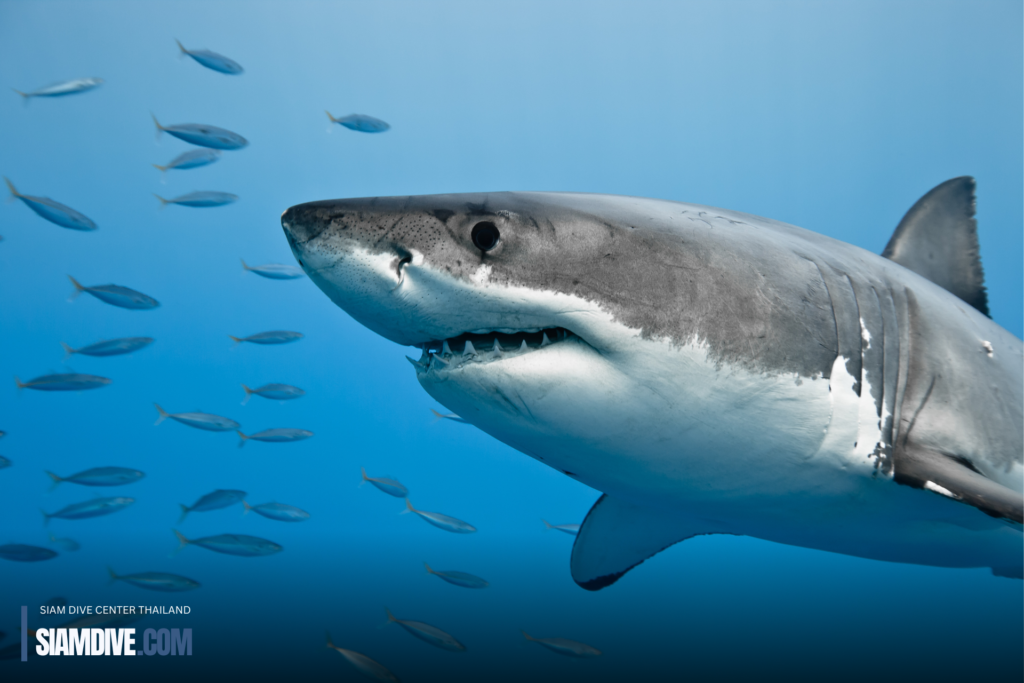
1. White Shark
White shark is often portrayed in movies and news as a dangerous predator attacking humans. However, in reality, it does not hunt humans as food. The bites usually occur due to confusion, curiosity, or the shark mistakenly thinking that humans are its typical prey.
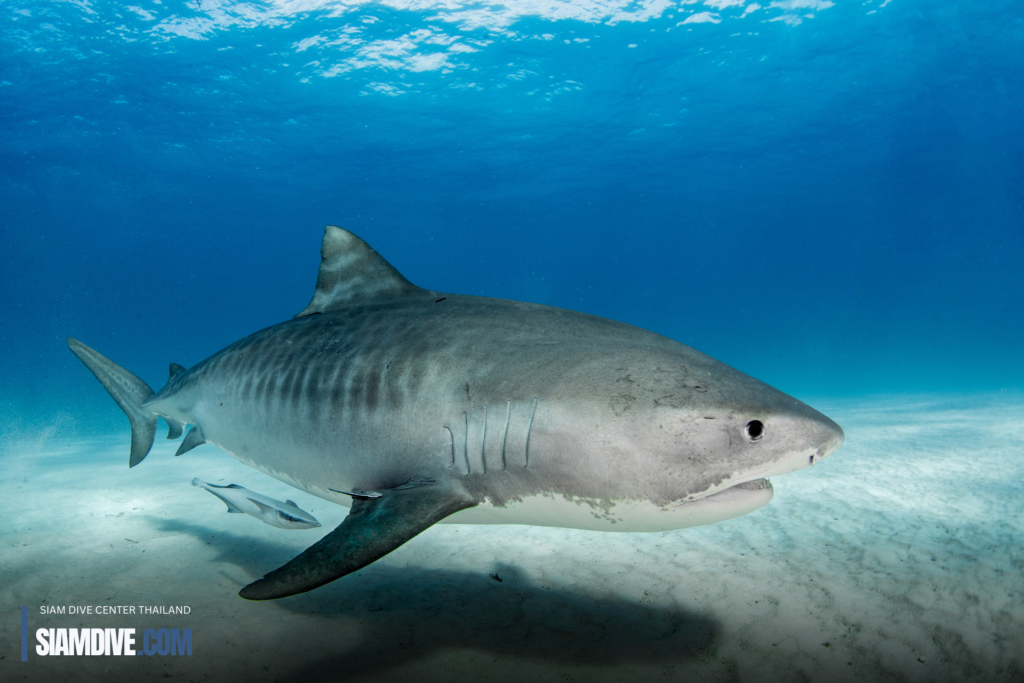
2. Tiger Shark
The tiger shark is also notorious for attacking humans and has a diverse diet, including garbage and foreign objects. With its large size and strength, it is considered one of the most fearsome predators in the ocean.
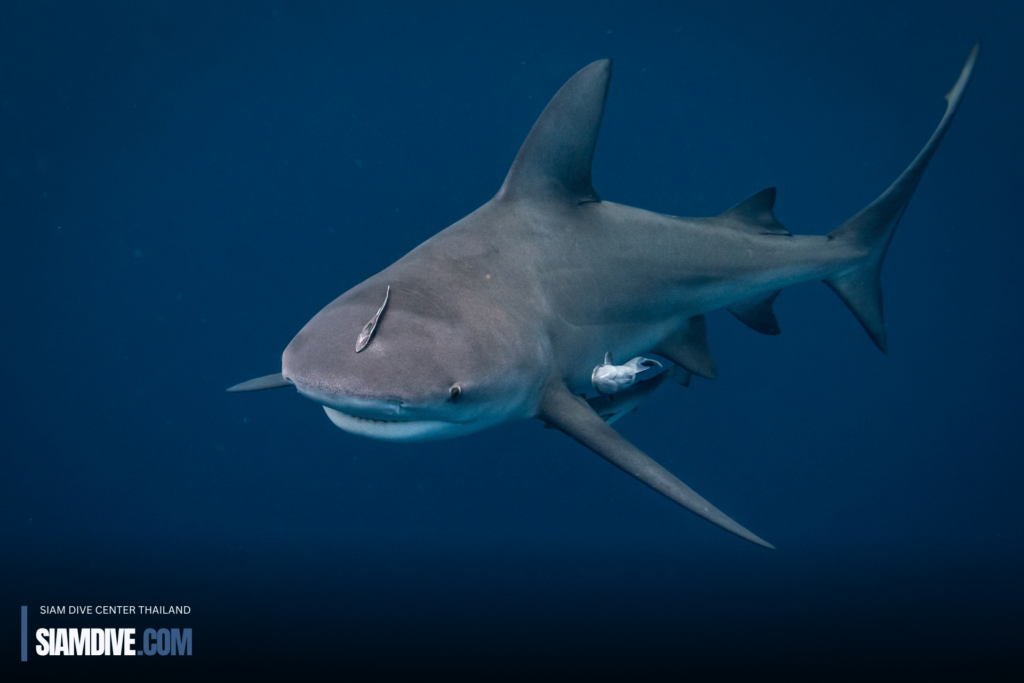
3. Hammerhead Shark
The hammerhead shark can be found in both saltwater and freshwater, and it is capable of swimming into rivers and lakes. Known for its aggressive and territorial nature, it often encounters humans, leading to more frequent confrontations.
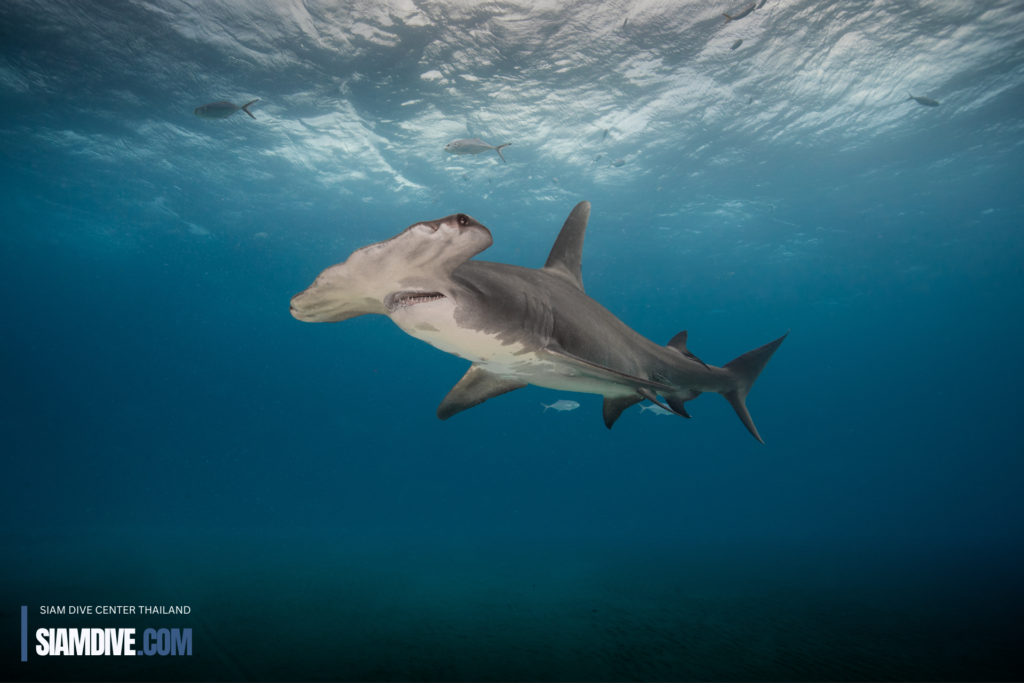
4.Hammerhead Shark
Although the hammerhead shark doesn’t attack humans as frequently as the species mentioned above, it can be a ferocious predator. When hunting in a group, its attacks are quick and precise, making it a skilled and effective hunter in the ocean.
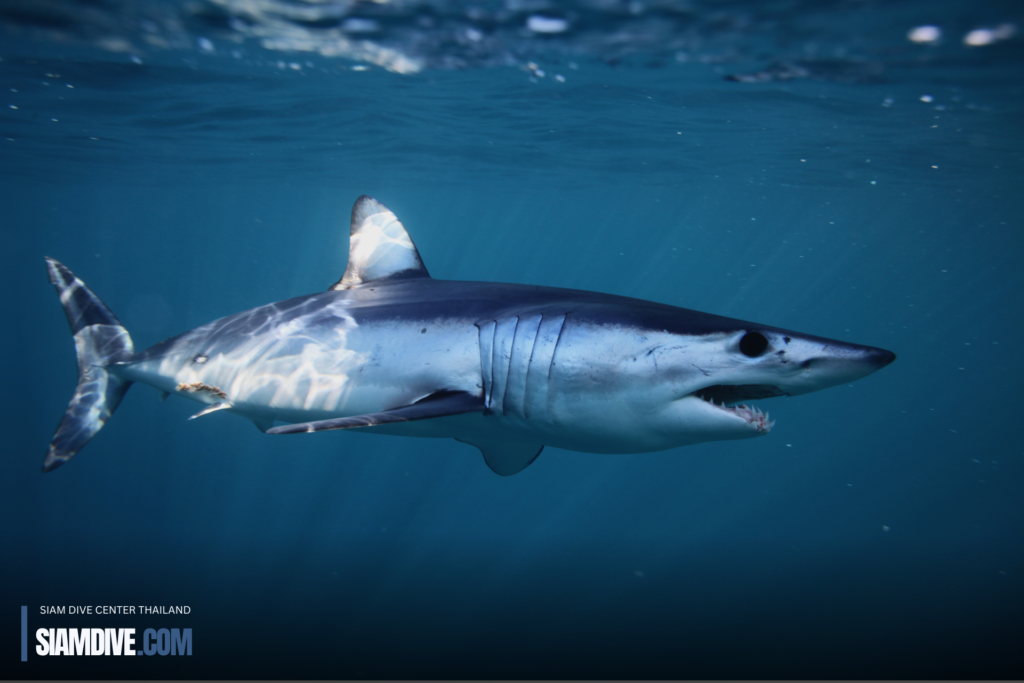
5. Mako Shark
The mako shark is the fastest swimmer in the world. It is known for its aggressive nature when feeling threatened. With its powerful hunting abilities and strong bite, the mako shark is a formidable predator in the ocean.
Sharks aren’t as scary as you think! If we take the time to learn and understand them better, well realize they’re not vicious creatures. Instead, they play a crucial role in maintaining the health of our oceans and ecosystems. Let’s not let misconceptions cloud the truth about these amazing creatures!
If you’re interested in receiving updates or learning to dive, contact at Siamdive :
•Website : https://www.siamdive.com
•Facebook: https://www.facebook.com/Siamdive
•Instagram: https://www.instagram.com/siamdive_
•TikTok: https://www.tiktok.com/@siamdive
•YouTube: https://youtube.com/@siamdivecenter






